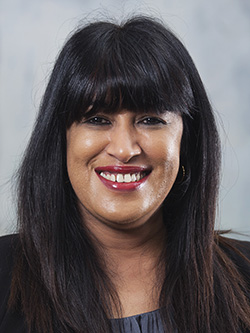
10 distinguished professors proof of FMHS’ academic excellence
Ten of the 37 academics recently honoured as Distinguished Professors by Stellenbosch University are from the Faculty of Medicine and Health Sciences (FMHS) – more than any other Faculty. And, of the 10, five are female – once again, more than any other Faculty.
Their appointment – and, in six cases, reappointment – is an acknowledgement of their exceptional academic performance, and take into account their contribution to research, publishing, teaching and postgraduate supervision, as well as the social impact of their work.
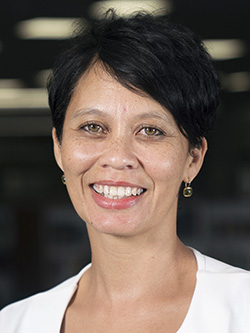
“My new position, together with my Research Chair in Innovative Rehabilitation, are wonderful accolades that position me well to positively influence young academics and steer extraordinary research that will embody new thinking and pushing the frontiers in knowledge and practice in the field."
Louw, appointed in 2005 as the first professor in physiotherapy at Stellenbosch University to develop research and postgraduate training, says: “My research objectives are closely linked to my Research Chair, in which I am well-positioned to produce novel advances in rehabilitation research within resource-constrained South African contexts.
“My research is guided by inclusivity, collaboration and integration to effectively engage with key stakeholders and end-users. In addition, I hope to reposition rehabilitation across a range of sectors."
Louw points out that innovation is an important pillar of her work: “Covid-19 has accelerated scientific innovation in order to address mounting health needs globally amidst rapidly changing contexts. My innovation will take three approaches. I hope to lead innovations in research methods as applicable to rehabilitation, innovation in health systems as well as evidence translation for societal impact."
In addition, Louw intends to pay close attention to building partnerships: “I aim to invest significant time and effort in expanding my networks and strengthening existing productive partnerships."
She has already made numerous presentations at national and international conferences, including at the International Society of Biomechanics and the World Confederation for Physical Therapy. She has been invited to speak at the World Physiotherapy Congress in April 2021.
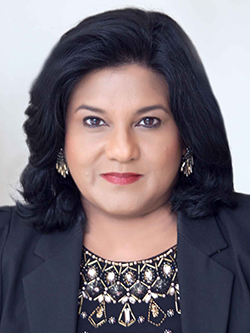
“I am delighted to be acknowledged for my contribution to the field of bioethics, particularly in the context of the pandemic and the general state of despair we have all experienced during 2020," says Moodley.
She also regards her appointment as recognition of the importance of her field: “Bioethics is generally less appreciated in academia in South Africa, despite it being critical to all disciplines. This acknowledgement therefore also serves to highlight the value that bioethicists add to health sciences' education and research."
Under Moodley's leadership, the Centre has played a leading role in building capacity in the field of bioethics in South Africa and elsewhere in Africa. “Over the past 17 years, it has extended Stellenbosch University's educational mandate into 10 African countries by developing bioethics capacity in 40 mid-career professionals on the continent," she points out. “Our Advancing Research Ethics Training in Southern Africa (ARESA) Leadership Program in Bioethics currently has seven PhD trainees."
Moodley adds: “Many of my research and training outputs were achieved with external funding from the National Institutes for Health (NIH) in the US. The four grants awarded to the Centre over the past seven years have brought in about R50 million, which has enabled the training of African scholars, employment of part-time academic and administrative staff, and promoted research into ethical, legal and social aspects of HIV and genomics biobanking."
As a result of such initiatives, the World Health Organisation (WHO) has designated the Centre as a WHO Collaborating Centre in Bioethics – one of just 10 in the world, and the only one in Africa: “This has resulted in international recognition of our work via global collaborative research and teaching as well as community engagement."
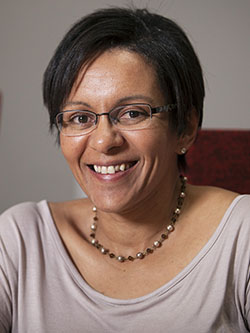
A key motivating factor in her work is to provide the necessary leadership to advance global health: “As Head of the Department of Global Health, I strive to provide academic leadership to advance global health – the field of scholarship and practice seeking to advance health equity.
“Key to this role is conducting, and supporting the conduct of, relevant, robust and timely research, and to engage with decision-makers to translate research into health policy and practice."
Young, who has conducted training in a number of African countries since 2010, stresses: “I am especially keen on fostering and advancing equitable partnerships to enable greater impact in what we do. Paying it forward through investment in the next generation is always close to my heart – to build their capacity to be able to address the variety of health and social challenges we face."
Like Moodley, she readily acknowledges the contribution of others to her academic achievements: “Achieving the academic goals for Distinguished Professorship is definitely a road one does not travel alone," notes Young.
“My special thanks go to all my colleagues, collaborators, students, funders and the many support staff working behind the scenes. My sincere appreciation for the enabling environment provided by the Faculty, and to my family for their unconditional support."
She takes pride in her FMHS colleagues who have been similarly honoured by the university: “I congratulate my colleagues who have also been appointed as Distinguished Professors, and am really pleased to see that 10 of the appointees are in our Faculty."
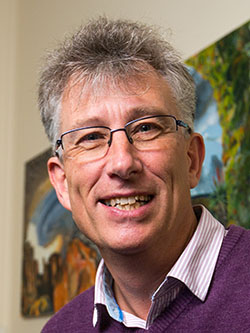
However, he also regards his appointment as far more than an individual honour: “It is great recognition for the way in which family medicine and primary care has emerged as a strong academic discipline at the university. In the 1990s, family medicine was a fledgling discipline struggling for recognition and traction at the Faculty. Now, 20 years later, this accolade affirms the importance of this discipline in the life of the university."
Yet Mash still sees many other formidable challenges ahead: “I want to support the strengthening of primary healthcare in South Africa, sub-Saharan Africa and globally through research and appropriate training of health professionals.
“There is growing political and policymaker momentum on the importance of primary healthcare to achieving universal health coverage and sustainable development goals. We need, however, to turn words into action, and in many countries in Africa, primary healthcare remains the Cinderella of the health system."
Mash adds: “I am involved in a number of initiatives in this regard – a global Primary Health Care Research Consortium, the Primary Care and Family Medicine network in sub-Saharan Africa, the African Journal of Primary Health Care and Family Medicine and developing primary healthcare as a niche research area in the Faculty."
Of the Faculty's 10 Distinguished Professors, three of the six reappointments are from one department – the Department of Paediatrics and Child Health:
- Prof Anneke Hesseling, director of the Desmond Tutu TB Centre, holds the first South African Research Chair Initiative (SARChI) chair in paediatric tuberculosis. For the past two decades, she has conducted clinical research in children in settings with a high incidence of tuberculosis and HIV, both in South Africa and further afield. A key focus of the Centre's research is on improved and safe tuberculosis preventive and treatment strategies for, among others, HIV-infected and uninfected children through vaccination and chemotherapy. She has published widely, and serves on various national and international advisory groups.
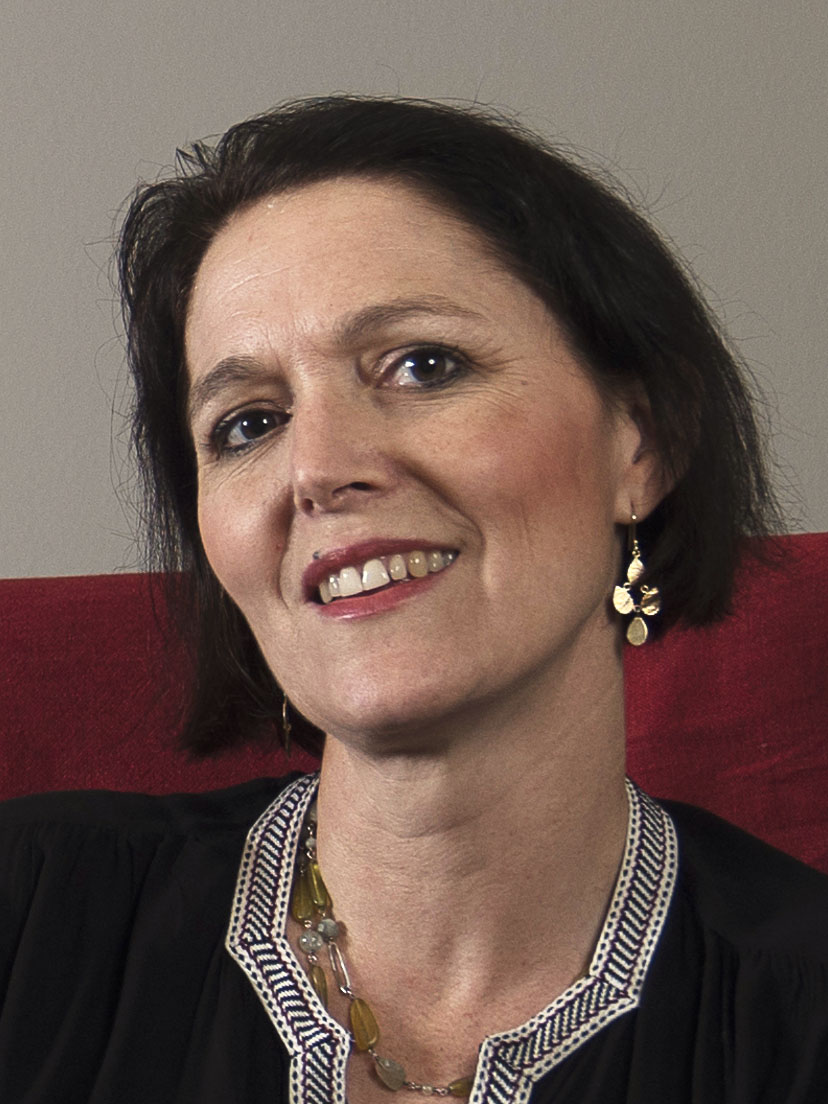
- Prof Mark Cotton is an internationally acclaimed specialist in the field of paediatric infectious diseases, with extensive experience in managing HIV-positive children. He established the Division of Paediatric Infectious Diseases at Tygerberg Children's Hospital in 1996, which he heads. He has been a technical advisor to the WHO on the paediatric classification for HIV and antiretroviral therapy guidelines since 2004. From 2005 to 2011, he was co-principal investigator of the Children with HIV Early Antiretroviral (CHER) study, which changed antiretroviral guidelines worldwide to early treatment regardless of the stage of the disease. He is president of the World Society of Paediatric Infectious Diseases.
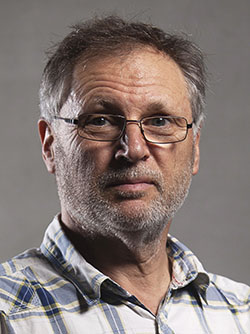
- Prof Simon Schaaf is a senior specialist in the Department. He is widely regarded as a pioneer of research on childhood tuberculosis, with a special focus on multidrug-resistant tuberculosis. Today he is recognised as one of the world's leading experts in this area, and his research has helped to broaden the understanding and management of tuberculosis, especially in children. He has published extensively, and co-edited the widely used textbook Tuberculosis: A Comprehensive Clinical Reference. He was awarded Honorary Membership of the International Union Against Tuberculosis and Lung Disease in 2015.
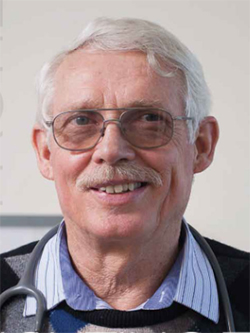
The Division of Molecular Biology and Human Genetics in the Department of Biomedical Sciences also features prominently among the FMHS's Distinguished Professors, with two of those reappointed based in this Division:
- Prof Robin Warren is Unit Director of the South African Medical Research Council (SAMRC) Centre for Tuberculosis Research. His research in molecular epidemiology has led to numerous landmark publications in the field of tuberculosis. He is a major contributor to the data guiding WHO tuberculosis testing, and his research is cited in WHO technical guides for tuberculosis diagnostics and treatment. In addition, he has developed a virtual whole genome sequence (WGS) training program for MSc and PhD students in collaboration with Antwerp University. He received the SAMRC Gold Medal award for scientific excellence in 2015.
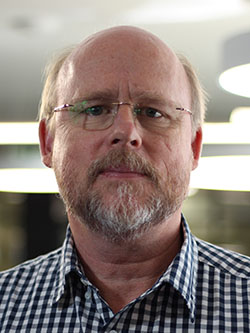
- Prof Gerhard Walzl is head of the Stellenbosch University Immunology Research Group (SUN-IRG), which he established in 2002. He is a clinician scientist trained in the fields of internal medicine, pulmonology and intensive care medicine. His research focuses on the immunology of Mycobacterium tuberculosis infection and in particular host biomarkers. SUN-IRG research bridges the divide between clinical and laboratory sciences in a high tuberculosis prevalence area. In addition, Walzl has set up a research program at Tygerberg Academic Hospital to investigate immune responses in the lung and pleura.
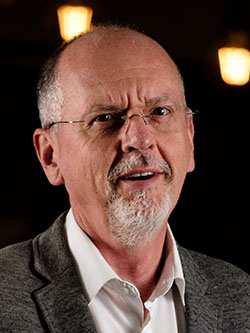
The sixth reappointment from the FMHS as Distinguished Professor is based in the Department of Psychiatry:
- Prof Soraya Seedat, executive head of the Department of Psychiatry, is an expert in the field of post-traumatic stress disorder (PTSD) and anxiety disorders. She directs the SARChI Research Chair in PTSD in the Department, and is also engaged in various collaborative projects with colleagues in the United States, Europe and several African countries. In addition, she is involved in multiple research training, capacity building and leadership development activities in sub-Saharan Africa. In 2014, she became an International Fellow of the American Psychiatric Association and is president of the College of Psychiatrists of South Africa.
